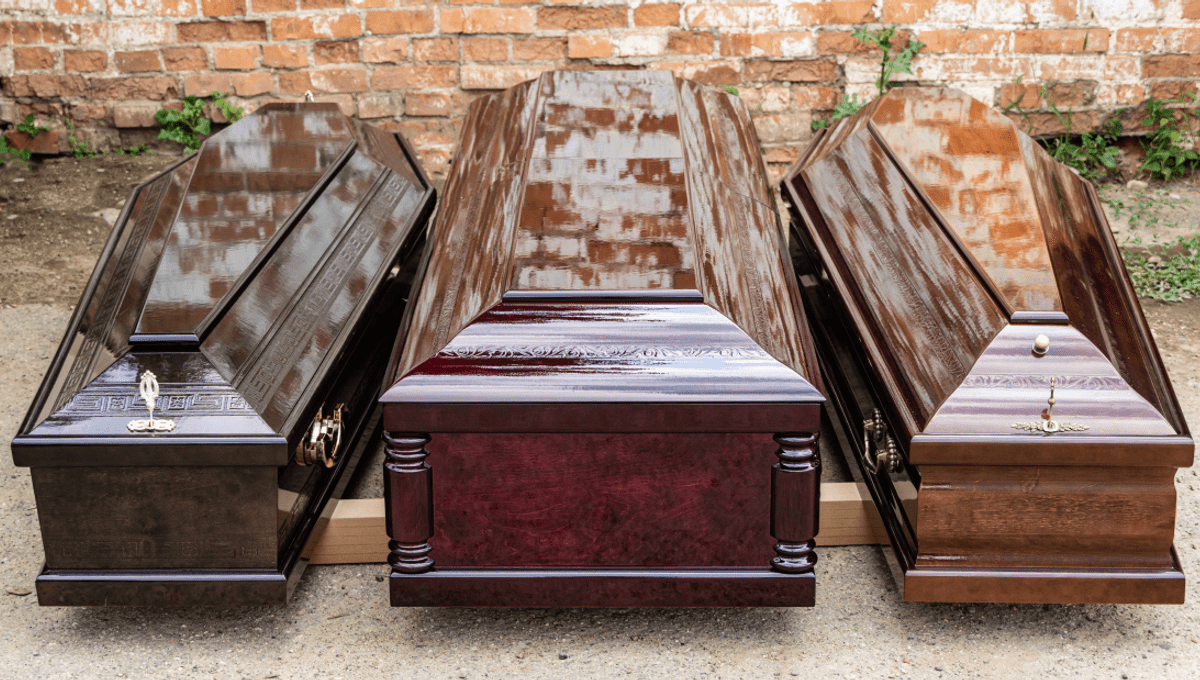
What’s the difference between a coffin and a casket? To the average person, probably nothing – but to funeral directors of the past, the difference was a key part of their marketing. As human funerary practices grew more complex, we moved from the kinds of wraps seen in Egyptian mummies to baskets. However, as culture changed, so too did some people’s discomfort around the dead.
Coffin comes from the French for “little basket” (cofin) which was eventually adopted to describe sarcophaguses. The structure of coffins later became more defined, referring to a hexagonal-shaped box with six sides that were angled outward to allow room for shoulders and tapered in to better fit the narrow feet-end of the human body.
These six-sided boxes were satisfactory for storing human bodies as they journeyed to their final resting places, but in some parts of the world they fell out of fashion. Why? In part, because not everybody likes to be reminded that they’re standing over a dead body when mourning at a funeral.
“Casket” is thought to have first been used to describe small, ornamental, chest-like storage pieces which might have been used for valuable and treasured possessions. Though the meaning of casket has in some places been extended to cover coffins, the crucial difference – as recognized by funeral directors of the time, at least – was that caskets were four-sided with a rectangular shape, and often marketed as being more decorative.
This contrasted against the six-sided arrangement of coffins which some considered less distinguished and a bit grim owing to how it outlined the shape of the dead body inside.
As English and American Literature, Folklore, and Film Studies Librarian Jeanne C. Ewert wrote: “The word casket itself was a euphemism used by the emerging funeral industry to distinguish itself and its precious contents from the vulgar coffins that could be knocked out by any carpenter.”
The hope was that people would be more sold on a casket which presumably kept them at a more comfortable distance from the idea of their own mortality, and looked a bit nicer – but not everybody was sold.
This switch was a “needless euphemism affected by undertakers” according to celebrated cynic Ambrose Bierce whose 1909 works on vernacular were republished by Jan Freeman in 2009. “Naturally, caskets met with the sneers that euphemisms often provoke,” wrote Freeman. “[Nathaniel] Hawthorne, in 1863, called casket ‘a vile modern phrase, which compels a person… to shrink… from the idea of being buried’.”
“Other critics called casket pretentious. Perhaps, suggested Edward S. Gould in Good English (1867), the obituary writer who uses the word is ‘intimating that a man in a ‘casket’ is not quite so dead as a man in a coffin’.”
As the song goes, it’s your party and you can get buried in a coffin (or a casket) if you want to. Just don’t tell Bierce about it.
[H/T: Mentalfloss]
Source Link: Caskets Were Invented To Avoid A "Vulgar" Feature Of Coffins